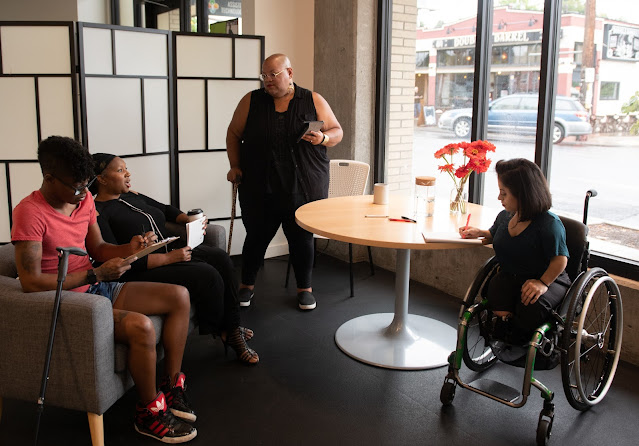Understand and manage the needs of different participants
The National Disability Insurance Scheme (NDIS) is a government-sponsored scheme to provide support services to people with disabilities in Australia. A person with a particular disability who requests help from the NDIS is a participant. The NDIS recognizes that a participant may be from a different region and ethnicity and may have a diverse cultural background. It emphasizes the importance of cultural competence in providing effective support planning services.
Cultural competence refers to the ability of NDIS providers to understand and respond effectively to their participants' cultural and linguistic needs. As a presenter, you need to be able to meet the needs of attendees from different cultures and ethnicities.
Why is cultural competence necessary?
Cultural competence is key to providing effective support services to culturally diverse participants. Cultural differences can affect how people react to a situation, how people communicate, and their expectations of support providers. Support coordinators must be able to navigate through these differences to provide adequate support. Cultural competence also helps build trust between the facilitator and the participants. Working effectively with a participant is more accessible when the facilitator can better understand the participants. This will help improve coordination and cooperation between the sponsor and the participants to achieve their goals.
Understand different cultures
In order to provide good service to a multicultural provider, the support coordinator must understand the cultural diversity of the participants. This includes understanding cultural values, beliefs, and practices that may influence sustainability. A few traditions that influence corporate governance:
Language Restrictions: Participants who speak a language other than English may need assistance communicating with their support coordinator.
Family Values: In some cultures, the family plays a central role in decision-making. Support coordinators should know this and include family members in the support process as appropriate.
Beliefs about disability: Attitudes towards disability can vary from culture to culture. Some cultures may view disability as a personal or family matter rather than a public issue, which affects the type of support participants may seek.
Stigma and discrimination: Participants of cultural backgrounds may face obstacles and discrimination because of cultural traditions or disabilities. Facilitators should be aware of these barriers and work with participants to overcome them.
Provide culturally appropriate services
Once support coordinators understand the cultural backgrounds of their participants, they can begin to provide culturally appropriate services. Some support strategies that planners can use to provide relevant services include:
Provide language support: Support coordinators can work with interpreters or translators to work with participants who speak languages other than English.
Collaborate with family members: Where appropriate, support coordinators can include family members in the support process to ensure that the participant's cultural values and beliefs are considered.
Provide education: Support coordinators can educate participants about the NDIS and the support system. This helps reduce any misunderstandings or misconceptions the participants may have. Participant advocate: Support coordinators can support participants facing obstacles or discrimination due to their culture or disability.
Final Thoughts
Cultural competence is vital to providing trusted support coordination services to culturally diverse participants. NDIS support coordinators must understand the cultural factors influencing support planning and provide culturally appropriate services to their participants. By doing this, facilitators can build trust with their participants and work together to achieve their goals. Hi Five is one of Australia's leading disability service providers. Hi Five has multilingual support staff that helps participants get the most out of their plans and help them achieve their goals. Hi Five provides trust support, psychosocial recovery coaches, home support, and paramedical services. Hi Five also offers a service named 'My Plan Manager' to provide you with a premium plan management service to achieve your goals.

Comments
Post a Comment